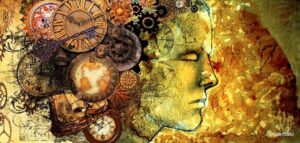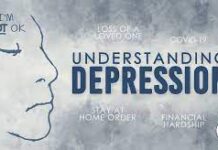 Does Vendanta lead to inaction?
Does Vendanta lead to inaction?
‘What is the use of philosophy in day-to-day life?’ This question seems to be there always and everywhere. Even before 3000 years, Socrates and Aristotle have answered that question. At this point in time, Will Durant, in his famous book ‘The Story of Philosophy’, has given a wonderful answer to the same question and has written a short foreword. In another famous book ‘Sophie’s World’ Jostin Guarder answers the same question. This answer needs to be given time and time again.
The fact is that philosophy and day-to-day life are very much related to each other. Superficially they might look unrelated. It is due to the ways of research and discussion in philosophy. Philosophy never discusses anything in the context of routine and day-to-day life. It looks for an eternal solution for day-to-day problems. It seeks a universal solution for the entire humanity.
Thus it makes the problem a very nuanced one and breaks it into various aspects. It examines the relationship and the contradictions between each and every aspect. Gives a name to every aspect. Various explanations and theories are formed about the relationship or the contradiction. They have a dialogue among them. The names of every aspect and theory become technical terms.
When an aspirant enters the field he could only see a dialogue among technical terms. He will not be able to grasp the day-to-day use of it. It appears to be just a game of logic to him. First, he has to understand the technical terms, the theories and then should have a minute understanding of the problem. From there he should move on understanding the problem in the context of day-to-day life. Then will he understand how philosophy gives nuanced and useful answers.
He would also have another surprise. He would realise that hitherto his life has been based on those various answers found by philosophy in the past. He would know that the entire society has been taking shape and functioning based on the answers provided by philosophy.
When the Soviet Union disintegrated, I met a senior communist leader. He was shattered. He had spent 40 years of his life for the communist movement. He was imprisoned many times. He felt that everything had become wasteful. More than that, he thought his life had been wasted. Suddenly he burst out and started crying saying ‘what is the meaning of all these?’ From that question, I went on to write my novel “pin thodarum nizhalin kural’.
History is happening here. There are political upheavals. There are changes in the power game. Dynasties disappear. Is there any purpose for this course of history. Does any logic function in this? Or does everything happen on its own, without any logic ?
German philosopher Hegel said that if you delve into history you would see a logical system. When time marches ahead, man’s overall knowledge, societal setup, culture all appear to be growing. Man becomes more intelligent. Humanity gets consolidated. Individuals become equipped with unifiedl knowledge and mind.
A fundamental motivation which is innate in humans changes man. It goes on making him more powerful. This is what history shows. In spite of wars, pandemics, famines, political upheavals and destruction man becomes more and more powerful.
This is like an advancement which arises due to a clash between positive and negative forces. He calls this ‘dialectics’. You can easily understand it by looking at a bunch of ants pulling a food particle. If that bunch is cut in the middle with a blade, you can see every ant pulling it towards its own direction. But overall you can see the food particle moving ahead. That is called dialectics.
Man grows in history, like a tree. It grows overcoming drought, forest fire and takes in available water and other nutrients. It is due to the tree’s will to grow, the inherent motivation. Hegel explained this in his book ‘The Phenomenology of Spirit’.
Hegel’s student Carl Marx accepted that history moves forward. But it does not happen due the innate force in man. It is the result of economic forces that are external. Production, Distribution and Consumption are economic forces. Politics, Society, Religion, Culture are all dependent on them. Through the dialectics of those productive forces history happens. Through that history man goes on becoming mightier.
Hegel put forth Historical Materialism and Marx put forth Dialectical Historical Materialism. Both the philosophies have had detailed dialogues among them. Reading those dialogues would make one think that philosophy is just nuanced logic. But there are two answers in that dialogue to the tearful questions raised by that old communist.
History happens through dialectics. Everyone pulls it toward his/her own direction. It moves like one consolidated step forward. That comrade made his own contribution. He could not guess the path of history as a result of that. He put into action the will to move forward that is in the social psyche. So, he is a contributor to history. His actions were not useless. This would be Hegel’s view.
Marx would have seen this from a different angle and said this world marches ahead through dialectics of economic forces. This comrade made his contribution representing one of the economic forces. His force is part of history’s overall function. Humanity moves forward through many types of happenings. Man grows, a comrade takes part in it.
If any one of the answers could have satisfied him, he would have been saved from facing that void. His senility would not have been so harsh.
All Indian philosophical texts say ‘the fruit of philosophy is ‘dhukka nivarana’ . We tackle all of our sorrows only with philosophy. Those philosophies are age old and they have naturally come to us and are in our everyday speech. But so many new problems and questions keep arising. Philosophy has to find an answer to the sorrow that these problems and questions create.
Jeyamohan
Translated by Srinivasan











